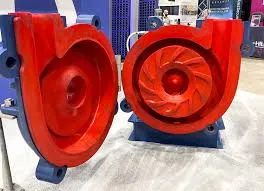Arabic
- Afrikaans
- Albanian
- Amharic
- Arabic
- Armenian
- Azerbaijani
- Basque
- Belarusian
- Bengali
- Bosnian
- Bulgarian
- Catalan
- Cebuano
- Corsican
- Croatian
- Czech
- Danish
- Dutch
- English
- Esperanto
- Estonian
- Finnish
- French
- Frisian
- Galician
- Georgian
- German
- Greek
- Gujarati
- Haitian Creole
- hausa
- hawaiian
- Hebrew
- Hindi
- Miao
- Hungarian
- Icelandic
- igbo
- Indonesian
- irish
- Italian
- Japanese
- Javanese
- Kannada
- kazakh
- Khmer
- Rwandese
- Korean
- Kurdish
- Kyrgyz
- Lao
- Latin
- Latvian
- Lithuanian
- Luxembourgish
- Macedonian
- Malgashi
- Malay
- Malayalam
- Maltese
- Maori
- Marathi
- Mongolian
- Myanmar
- Nepali
- Norwegian
- Norwegian
- Occitan
- Pashto
- Persian
- Polish
- Portuguese
- Punjabi
- Romanian
- Russian
- Samoan
- Scottish Gaelic
- Serbian
- Sesotho
- Shona
- Sindhi
- Sinhala
- Slovak
- Slovenian
- Somali
- Spanish
- Sundanese
- Swahili
- Swedish
- Tagalog
- Tajik
- Tamil
- Tatar
- Telugu
- Thai
- Turkish
- Turkmen
- Ukrainian
- Urdu
- Uighur
- Uzbek
- Vietnamese
- Welsh
- Bantu
- Yiddish
- Yoruba
- Zulu
Telephone: +86 13120555503
Email: frank@cypump.com
نوفمبر . 08, 2024 04:06 Back to list
Efficient Solutions for Wastewater Management with Powerful Sewer Pumps and Systems
Understanding Sewer Pumps Essential Components for Wastewater Management
Sewer pumps play a crucial role in the effective management and transportation of wastewater in urban and rural settings. These specialized pumps are designed to move sewage and wastewater from lower elevation areas to higher elevation points, ensuring that communities maintain a clean, safe, and functional sanitation system. Understanding the functionality and importance of sewer pumps can aid homeowners and municipal managers alike in maintaining an efficient sewage system.
What are Sewer Pumps?
Sewer pumps are mechanical devices used to transport sewage and wastewater. They are typically employed in situations where gravity alone cannot move wastewater to treatment plants or municipal sewer lines. By utilizing mechanical force, these pumps overcome gravity, ensuring a consistent flow of waste materials. There are various types of sewer pumps, including submersible pumps, effluent pumps, and grinder pumps, each designed for specific applications based on the nature of the wastewater and the requirements of the plumbing system.
Types of Sewer Pumps
1. Submersible Pumps Designed to operate while submerged in wastewater, these pumps are efficient for moving large volumes of sewage. Their ability to work below the water surface reduces the need for complicated suction systems and minimizes noise pollution.
2. Effluent Pumps Ideal for moving gray water (water from sinks, baths, and washing machines) rather than raw sewage, effluent pumps typically have smaller components suitable for less challenging applications.
3. Grinder Pumps These powerful pumps are equipped with a grinding mechanism that pulverizes waste before pumping it away. They are particularly useful in situations where sewage includes solid materials, allowing for easier transport through smaller pipes.
Applications of Sewer Pumps
sewer pumps

Sewer pumps are utilized in a variety of settings
- Residential Homes Homeowners may require sewer pumps, particularly in areas where gravity drainage is not feasible. For instance, homes situated below the level of the main sewage line often rely on these pumps to ensure the effective disposal of wastewater.
- Municipal Wastewater Systems In larger settings, municipal sewer systems use sewer pumps to facilitate the movement of wastewater from various collection points to treatment facilities. They are essential in maintaining the overall health and efficiency of urban infrastructure.
- Commercial Buildings Commercial properties, especially those with multiple stories or unique plumbing layouts, often employ sewer pumps to ensure that sewage is effectively managed and transported to the municipal waste systems.
Maintenance and Troubleshooting
Proper maintenance of sewer pumps is vital to their longevity and efficiency. Regularly checking for blockages, ensuring that the float switches are functioning correctly, and inspecting electrical components can prevent costly repairs and system failures. Homeowners and facility managers should also be aware of common problems, such as unusual noises, slow drainage, or pump failure, and take action promptly to address them.
Conclusion
Sewer pumps are a fundamental component of both residential and municipal wastewater management systems. By facilitating the movement of sewage and wastewater, they help maintain sanitary conditions and protect public health. Understanding the types, applications, and maintenance of sewer pumps enables communities to create sustainable waste disposal systems and tackle the challenges of modern wastewater management effectively. As urban areas continue to grow, the importance of reliable sewer pump systems will only increase, making them essential for a well-functioning infrastructure.
-
Custom Drilling Mud and Slurry Pump Supplier - High Efficiency, Tailored Solutions
NewsJun.10,2025
-
Supply Vertical Submersible Sewage Pump High-Efficiency WQ/QW Pumps Supplier
NewsJun.10,2025
-
Premium Sewage Ejection System & Pumps Efficient Waste Removal
NewsJun.09,2025
-
Premium Wholesale Slurry Pump Impellers Durable & Efficient Slurry Handling
NewsJun.09,2025
-
Top Sewage Pump Companies Durable Industrial Solutions for Efficiency
NewsJun.09,2025
-
Heavy Duty Slurry Pumps - OEM High Performance & Bulk Wholesale
NewsJun.09,2025










